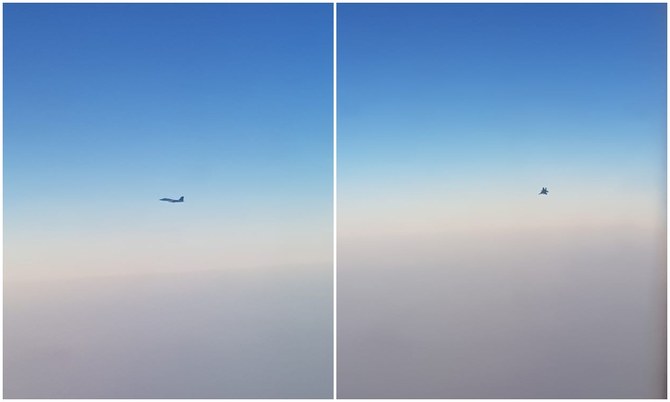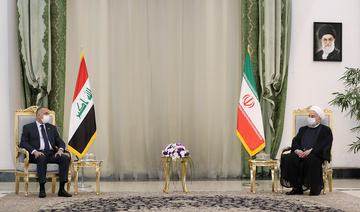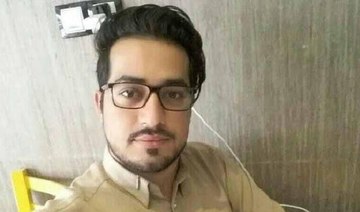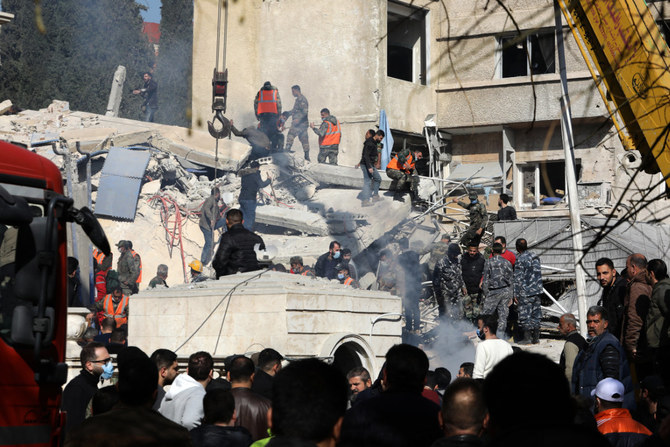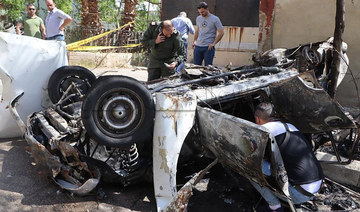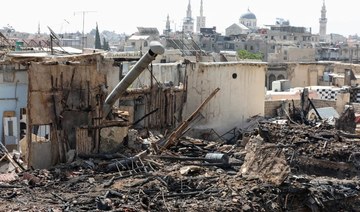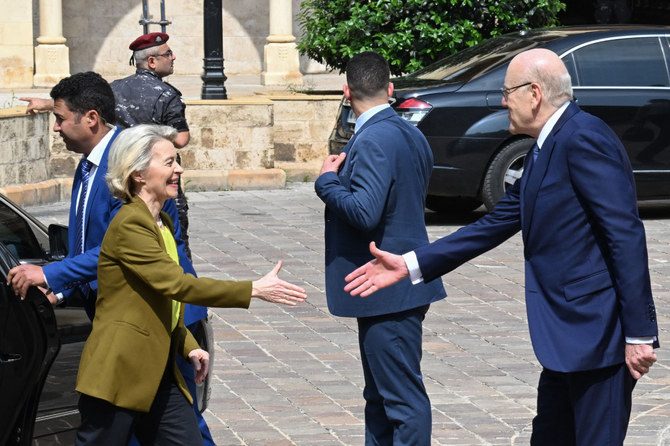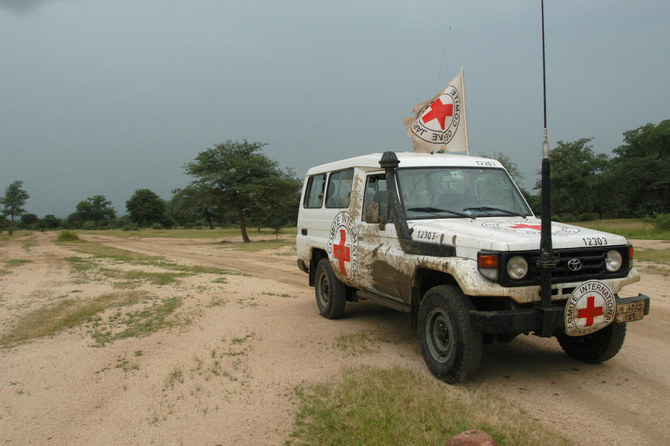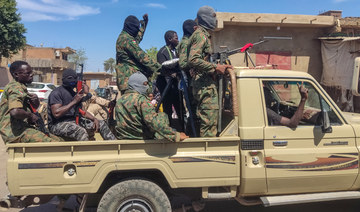BEIRUT: An Iranian passenger plane was intercepted by two fighter jets in Syrian airspace during a flight from Tehran to Beirut.
The pilot of the Mahan Air plane said two US jets approached the airliner forcing him to change altitude to avoid a collision, Iran’s IRIB news agency reported.
Earlier, the agency said the Airbus A310 had been approached by a single Israeli jet.
The US military said its F-15 jet did pass by the Iranian plane, but at a safe distance.
There were conflicting reports as to what had happened, as Iran initially blamed Israel for the incident.
Syrian state media quoted unidentified civil aviation officials in Damascus as saying two jets, suspected of belonging to the US-led coalition, “intercepted” an Iranian passenger plane over Al-Tanf, in southwestern Syria.
US troops fighting Daesh militants have established a presence in the Al-Tanf area since 2016, which is near Syria’s borders with Iraq and Jordan. The US has declared it a so-called de-conflicted zone. Beyond it, Syrian forces and their Iranian allies operate, which makes it a remaining flashpoint in the region.
The reports said the interception forced the pilot to sharply change altitude, flying low and causing slight injuries among some of the passengers.
Iran’s official IRIB news agency quoted a passenger describing how his head had hit the roof of the plane during the change in altitude, and video showed an elderly passenger sprawled on the floor.
Aviation experts told Arab News that the plane, Flight 1152, landed at Rafic Hariri International Airport at 7:50 p.m. after flying from Tehran through the airspace of Iraq and Syria.
The two warplanes intercepted the plane at 6:14 p.m.
Fight tracking data showed the plane dive and then climb again.
“The pilot was forced to suddenly increase the altitude by 350ft to avoid the intercepting planes, which led to the state of turbulence inside the plane,” a source from Lebanese Plane Spotters said.
Immediately after the plane landed, video circulated on social media showing the shocked passengers on board, a child with a bandaged head and another person with a head wound. The passengers’ contents were scattered across seats and along the floor. Some passengers were wearing life jackets.
In another video passengers could be heard screaming and in panic.
Photos claimed to show the two intercepted planes.
All the passengers left the plane, some with minor injuries, the head of the Beirut airport told Reuters.
The plane arrived back in Tehran in the early hours of Friday, the Fars news agency reported.
Ambulances were seen on the runway in Beirut transporting four injured passengers, including an elderly man, to hospital.
The US imposed sanctions on Mahan Air in 2011, saying it provided financial and other support to Iran's Revolutionary Guards
In a separate incident, Lebanese Army Command said an “Israeli enemy reconnaissance plane” entered Lebanese airspace in the morning over the town of Kafr Kila, and carried out a circular flight over southern Lebanon.
The military added that a similar enemy plane “violated Lebanese airspace” over the town of Aitaroun shortly after.
Tensions have spiked between Tehran and Washington since 2018, when US President Donald Trump exited Iran’s 2015 nuclear deal with six powers and reimposed sanctions that have battered Iran’s economy.
Visual inspection
The US military’s Central Command, which oversees American troops in the region, said the F-15 aircraft was conducting a visual inspection of the Iranian aircraft when it passed near the Tanf garrison in Syria where US forces are present.
Captain Bill Urban, the senior Central Command spokesman, said the F-15 “conducted a standard visual inspection of a Mahan Air passenger airliner at a safe distance of about 1,000 meters (3,280 feet) from the airliner this evening.”
“The visual inspection occurred to ensure the safety of coalition personnel at At Tanf garrison,” Urban said. “Once the F-15 pilot identified the aircraft as a Mahan Air passenger plane, the F-15 safely opened distance from the aircraft.”
He added the intercept was carried out in accordance with international standards.
The pilot of the passenger plane contacted the jet pilots to warn them to keep a safe distance and they identified themselves as American, IRIB reported.
Diplomatic protest
Iran’s Foreign Ministry said that following the incident, a protest note was sent to the Swiss Embassy, which represents America’s interests in Iran, warning that if any accident happens on the plane’s return flight to Tehran, it will be the responsibility of the United States.
The ministry’s spokesman, Abbas Mousavi, said Iran is investigating the incident. The same note was also delivered to the UN Secretary-General António Guterres by Iran’s ambassador to the United Nations, Majid Takht-e Ravanchi.
Mahan Air is a privately owned airline based in Tehran that flies across the Mideast. In 2011, the US Treasury sanctioned the airline for allegedly “providing financial, material and technological support” to Iran’s Quds Force, the expeditionary arm of the paramilitary Revolutionary Guard.
The Treasury also alleged Mahan Air had carried weapons, goods and personnel for the Lebanese militant group Hezbollah.
All this comes amid heightened tensions between Iran and the US after President Donald Trump unilaterally withdrew from Tehran’s nuclear deal with world powers over two years ago.
In the time since, a series of escalating incidents have occurred across the Mideast between the two countries, including the US killed an Iranian general in a drone strike and Tehran launching ballistic missiles targeting American forces in Iraq.
(With Reiuters & AP)



